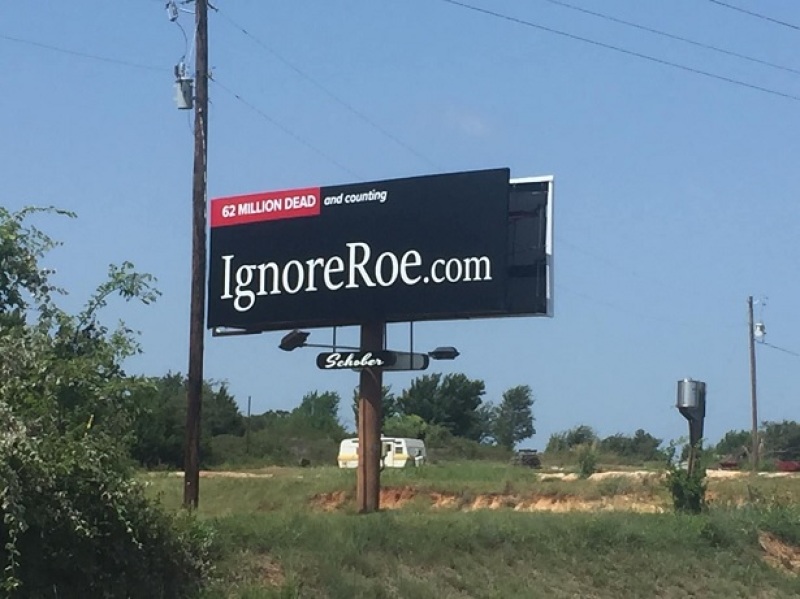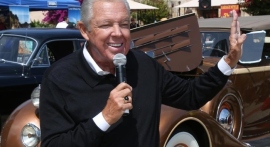
Albert Mohler, the president of the Southern Baptist Theological Seminary, is one of many prominent Christian leaders keeping a careful eye on a case that challenges the precedent set by the Roe v. Wade ruling.
On Dec. 1, the Supreme Court started hearing the case of Dobbs vs. Jackson Women's Health Organization. Because of Mississippi's abortion legislation, which was passed three years ago and defines a basic right to abortion as unconstitutional, according to Mohler's analysis on his Wednesday episode for The Briefing, this serves as a direct challenge to Roe v. Wade.
The question on the table is whether or not the state of Mississippi has the authority to enact legislation safeguarding unborn human life.
"Pro-life Americans, and in particular, American Christians have to understand how long we have been waiting for this day, how long we have been waiting for the Supreme Court to be presented with this kind of question, for the court to take the case," said Mohler.
"There is no doubt that there is encouragement in the fact that a sufficient number of justices agreed to consider this case, because fundamentally, there is no reason to consider this case unless Roe itself is at stake," he pointed out.
It's been almost 50 years since Roe v. Wade was handed down on Jan. 22, 1973, and the pro-life movement has been fighting for this for nearly as long.
Mohler pointed out that about half of the states now have legislation in place that would make abortion illegal if the Roe v. Wade decision were to be overturned, and there are likely to be more state-by-state battles in the future.
"So is this a case about abortion? Well, in the larger sense, profoundly yes, it is about abortion," he explained. "The specific question is about the constitutionality of a Mississippi statute enacted by the legislature, signed into law by Mississippi's governor. But that question has everything to do with whether or not states are recognized to have the Constitutional authority to legislate any restriction or ban on abortions."
Mohler emphasized that, notwithstanding the case's legality, Christians ought to keep in mind that the issue cannot be separated from its greater moral context.
"We have to understand that what is at stake here is not just the issue of abortion or the future of abortion in the United States, but it is also whether or not the court and thus the legislatures understanding the rulings of the court will have to operate upon the language, the actual text of the Constitution, or are free to invent new rights," he noted.
Mohler said that pro-abortion supporters turned to the federal courts for help in getting what they couldn't get via political means by going past legislatures and Congresses.
On the other hand, pro-lifers put their faith in a case known as Casey in the 1990s, but a majority of the justices ultimately upheld the key assertions of Roe about a woman's right to an abortion in that decision as well. It has been a controversial subject in the United States ever since then, with abortion becoming increasingly more contentious and polarizing.
Religious conflict over abortion
In an episode of Mohler's The Briefing, he addressed a claim made in an Associated Press article about pro-abortion campaigners including Jews, Christians, Buddhists, and others.
"A majority of Buddhist, Hindu, historically black Protestant, Jewish mainline Protestant, Muslim and Orthodox Christian adults support legal abortion in all or most cases. That according to the PEW Research Center's religious landscape study," the report claimed.
When it comes to abortion, Mohler's main gripe is with the idea that evangelical Christians and Catholic bishops and Catholic intellectuals are anti-abortion whereas liberal Protestant denominations are pro-life advocates. This was from the following statement from the AP article which Mohler also cited:
"We're told that Catholics are split on the issue. By the way, the official teaching of the Roman Catholic church is not split. It's decidedly pro-life," Mohler maintained.
He also addressed the cited voice of authority-- Texas Freedom Network's outreach and religious manager Reverend Erika Forbes. She's reportedly the driving force behind the Reproductive Freedom Congregation Initiative, which is a network of churches working together to promote abortion rights.
"Now, you just have to look at that network to understand we are talking about a very, very liberal theology. We're talking about what can only be theologically defined as post-Christianity," reasoned Mohler.

























